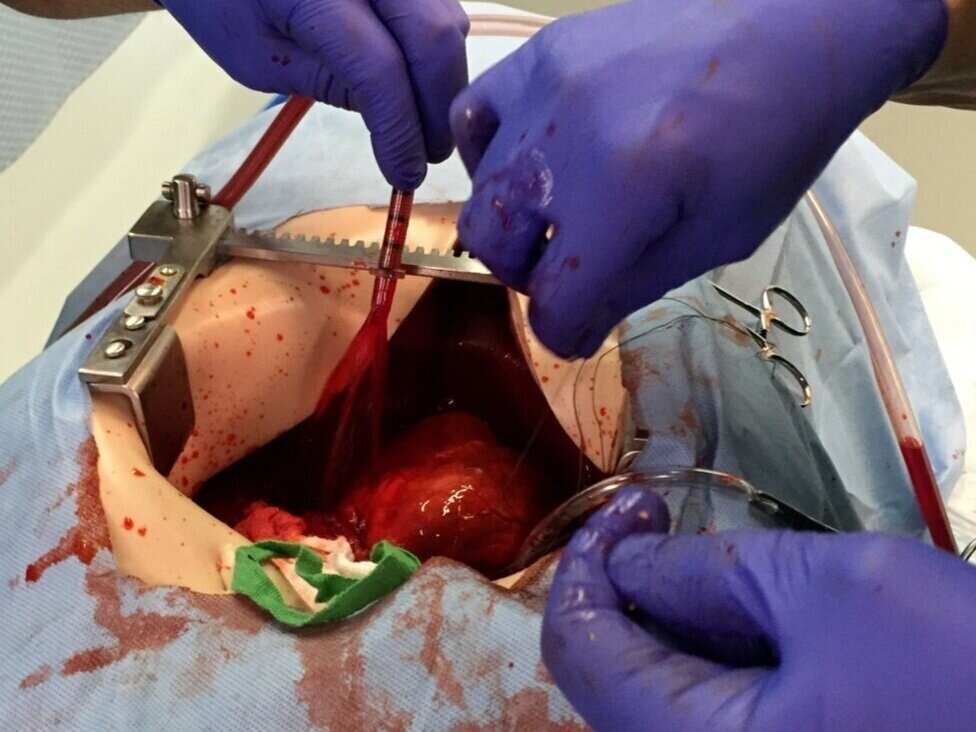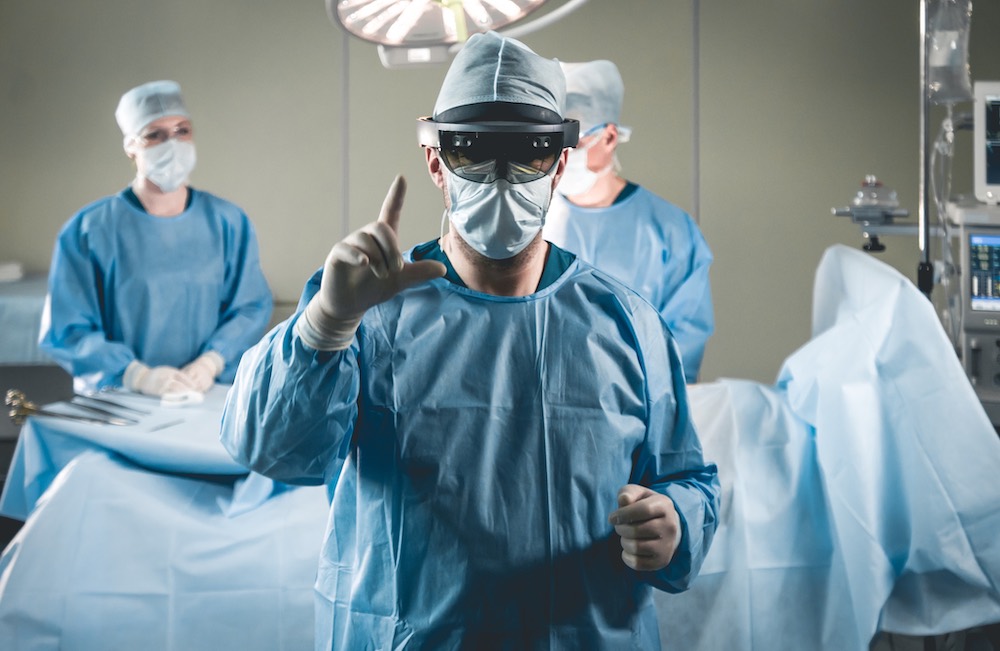Surgical simulation is a specialized area of medical simulation that enables learners and professionals to train on the latest surgical simulator technologies. Such surgical simulators can be used to practice a number of surgical procedures, ranging from simple sutures to advanced robotic surgery. Surgical training and learning has been one of the leading medical specialties to adopt the practice of simulation.
This is due to the high cost of surgery paired with the risks associated in performing many of these procedures. Therefore, clinical simulation has been used to prepare learners for the field, decreasing medical errors and increasing patient safety. As technology advances, many more surgical simulators are being introduced to the market as viable training solutions.
As such, today we are sharing some of the most recent developments in surgery simulators for those programs who support these clinical training needs! Here are surgical simulators to consider implementing into your simulation center:
VirtaMed’s New Laparoscopic Simulator: LaparoS
In late 2020, VirtaMed launched the company’s new LaparoS laparoscopy simulator. This laparoscopic simulator is designed to offer key preparation steps for laparoscopic procedures. These procedures include realistic patient positioning, free trocar placement and the ability for several surgeons to simultaneously operate on the same simulated patient.
The LaparoS training concept also provides condensed training focused on short sequences, teaching transferable key skills. Such skills involve instrument triangulation, bimanual coordination, anatomy identification, performing different dissection techniques, safe clipping and cutting, complication handling and more. LaparoS also offers the ability for several surgeons to simultaneously operate on the same simulated patient.
Learners can use the LaparoS surgical simulator to visualize the entire insufflated female abdomen, including the gravitational movement of organs. They can safely introduce trocars and palpate vessels and organs, and expose structures by using electrosurgical instruments as well. Adding to the product’s comprehensive learning uses, VirtaMed’s LaparoS is a multidisciplinary platform, allowing the learner to rapidly switch between laparoscopy and other VirtaMed modules and anatomies including GynoS, UroS and ArthroS.
PCNL Surgical Trainer from Marion Surgical
The K181 PCNL and Kidney Access Array from Marion Surgical is a virtual reality surgical simulator for training percutaneous access procedures performed under real-time fluoroscopy. The haptic training platform is designed for X-ray guided access in percutaneous nephrolithotomy (PCNL) procedures, and is now available for monthly rental. This surgical simulator allows the user to walk through a number of virtual features, such as C-Arm and fluoroscopy image navigation.
The K181 surgical simulator can predict calyceal access for percutaneous nephrolithotomy with computed tomography, and determine the angle and depth of puncture for fluoroscopy-guided percutaneous renal access. The surgical simulator also includes:
- Bull’s-eye and triangulation puncture techniques
- C-Arm and fluoroscopy image navigation
- Tool and guide wire manipulation
- Measurement and scoring based on manual and decision-making protocols
- Using wires of different sizes
The K181 PCNL surgical simulator comes with four cases, ranging from beginner to moderate. Scoring of each module is based on accumulated X-ray time, the total length of the tool path and accuracy in placing the needle tip in the target zone. The virtual solution is realistic, risk-free and repeatable, using real surgical instruments to create an accurate and lifelike procedure experience. Each user is able to monitor their surgical proficiency throughout the training life cycle.
During COVID-19, Marion Surgical recommends that learners using the PCNL Surgical Trainers wear a face mask while training on the simulator and while wearing the VR headset. The company also recommends for users to disinfect their hands with hand sanitizer before touching any of the equipment, and to use a disinfectant wipe to clean the headset, keyboard, mouse and haptic needle after each use.
KindHeart Surgical Simulators
KindHeart is a healthcare simulation company that provides real-tissue simulation in a dry-lab setting using porcine tissue. With tissue that beats and bleeds, the company fabricates an immersive environment for surgical simulator demonstrations. KindHeart offers a wide expanse of systems for cardiac, thoracic, general and bariatric surgery that can be customized for client needs.
KindHeart’s proprietary platform is predictable, flexible, and scalable, making the technology easy to simulate adverse conditions which surgeons might encounter. For example, the KindHeart Cardiac Surgery Simulator (CSS) can be used to demonstrate a Coronary Artery Bypass Graft (CABG) and Aortic Valve Replacement (AVR) with associated component tasks. This includes aortic incision, valve seating, annular suture placement, aortic closure and de-airing. The model consists of a porcine heart that can realistically beat and bleed.
Alternatively, the KindHeart Thoracic Surgery Simulator (TSS) can be used to demonstrate a lymph node dissection, fissure dissection, vessel dissection, left-upper lobectomy and stapler demonstration. This surgical simulator model also consists of a porcine heart and left lung that can realistically beat and bleed.
The KindHeart Bariatric Simulation can demonstrate a sleeve gastrectomy or a “Roux-en-Y” gastric bypass. The included tissue has a pre-placed bougie dilator, and the stomach is modified to allow stapling of its full thickness. Comprised of a colorectal model and a hernia model, the The KindHeart™ General Surgery Simulation is to be fitted with the KindHeart abdominal simulator. Lastly, the KindHeart Skills Training Platform is used for the demonstration and practice of critical component skills related to surgery, including the use of specific devices.
ReSuture Surgical Simulators
Working closely with surgeons, ReSuture, a healthcare simulation company, creates realistic, synthetic anatomical structures and has developed a perfused system for training in open surgery. Additionally, ReSuture has developed a comprehensive vascular surgical simulator for the acquisition of key surgical skills. Through these surgical simulators, ReSuture delivers an accurate procedural experience outside the operating room, allowing surgeons to perfect the necessary skills to provide exceptional patient care.
The open vascular training system (OVTS) is ReSuture’s most versatile and comprehensive option for training in open vascular surgery skills. The OVTS is compatible with ReSuture’s procedural cartridges, allowing for a wide range of surgeries to be simulated in the same perfused system. Pulsatile fluid flow coupled with our high-fidelity procedural cartridges delivers unparalleled realism in surgical training. The compact and multifaceted utility of the OVTS means surgical trainees can get the experience of operating — anytime, anywhere.
Another ReSuture surgical simulator allows a synthetic carotid artery to be cut and sutured like real human tissue. With dimensional accuracy and lifelike plaque, the ReSuture carotid artery provides an unrivaled training experience. The cartridge also contains relevant anatomical structures, including the internal jugular vein, hypoglossal nerve, vagus nerve and sternocleidomastoid muscle. The ability to practice clamping and shunting means users can perform an entire carotid endarterectomy procedure from start to finish.
The UpSurgeOn Academy Surgical Simulators
The UpSurgeOn Academy is a technologically-advanced sequence of virtual healthcare simulation and physical technologies designed to support mental and manual training and advance cognitive and motor skills. The company’s mission is to increase patient safety and save millions of lives by training more skilled neurosurgeons across the globe, The UpSurgeOn Academy aims to improve learning curves, expediting mastery, whilst reducing the high costs of training.
The company’s Tabula Anatomica I is an anatomical poster made with high quality, scientifically accurate renderings. The product can be fully examined in AR and is used with a smartphone. Another The UpSurgeOn Academy product is the BrainBox, a hyperrealistic simulator of neurosurgical approaches and intracranial scenarios. This product has been conceived to be fused with an augmented reality app to improve the simulation experience. All UpSurgeOn apps contain hyperrealistic 3D scenarios, anatomical models and surgical simulations, created under the advice of experienced neurosurgeons, all explorable in Augmented Reality.
Laparo Medical Simulators
Laparo Medical Simulators was originally founded by three friends with a passion for medical technology. They started from a simple idea: They knew that manual practice is important for surgeons, and how dangerous and expensive making a mistake in the field can be. They began by designing an initial laparoscopic simulator and their global adventure was ignited.
Today, Laparao Medical Simulators is a manufacturer of a wide range of laparoscopic trainers and simulators. The company has two product lines: individuals and professionals. The individual line is dedicated to learners and young physicians. As the access to hands-on laparoscopic training is limited not only during the COVID-19 pandemic, Laparo Medical Simulators designed the LAPARO Aspire and LAPARO Advance simulators to enable future surgeons to excel in laparoscopic skills whenever they prefer and however often they need.
The line of professional simulators are dedicated to medical universities, hospitals and simulation centers. Within this line, two options for the Advance are available: the Advance portable and Advance Training Station. Additionally, Laparo Medical Simulators’ flagship product, the LAPARO Analytic, allows for solo training. A learner can create a user account, choose a training type, watch the tutorial on how the training should be done and send the video to an instructor or leave it for professor assessment. The LAPARO Analytic also gives automatic feedback.









